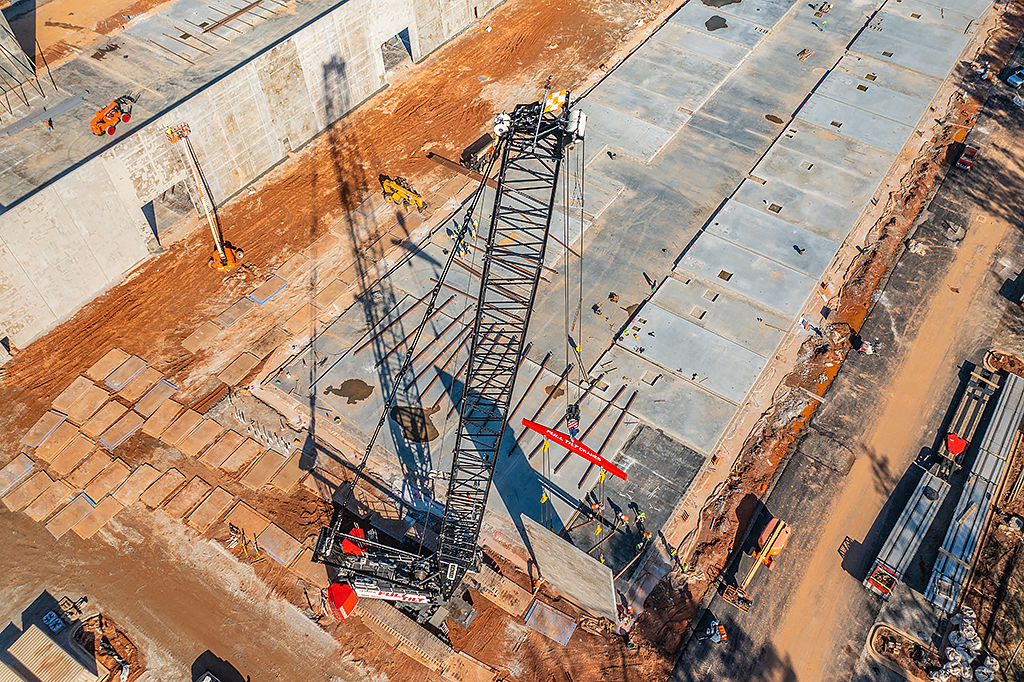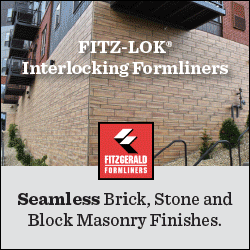Electric Owl Studios
Español | Español | Translation Sponsored by TCA
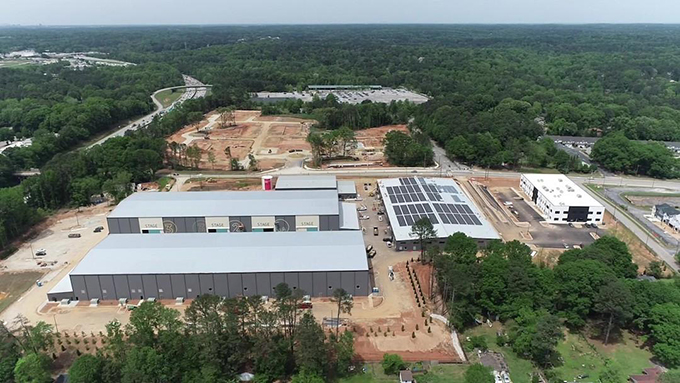
By Keily Perla, Client Relations Marketing Strategist, Martin Concrete Construction
The newest addition to Georgia’s growing film industry is finally complete. In the heart of Atlanta, Electric Owl Studios, a 300,000-square-foot production facility, opened in June with a ribbon-cutting ceremony to celebrate the accomplishment.
The Electric Owl Studios campus comprises purpose-built sound stages, production offices, and even an art building and wardrobe area. This new studio serves Georgia’s increasing needs for more production spaces as Atlanta becomes the “Hollywood of the South.” More importantly, an environmental approach was taken when developing and planning the sound stages, shedding new light onto how the world of movie and TV production could be more sustainable.
Electric Owl Studios aims to minimize its environmental impact and is honored to be named the world’s first purpose-built, LEED Gold certified, tilt-up, film and TV studio. Measures taken to make this the “greenest studio on earth” include reducing its carbon footprint and generating clean energy by using LED lighting throughout, offering EV charging stations, and utilizing solar panels and carbon-negative concrete. The studio’s significant environmental focus will reduce the overall impact of the production process from construction to day-to-day filming operations.
Martin Concrete Construction worked alongside general contractor Griffco Design/Build to fulfill the concrete scope of work for the movie studio, including two 70,000 SF tilt-up buildings for six sound stages, slab on metal deck, and CIP. Martin Concrete’s preconstruction and project management teams were heavily involved with Griffco in the design/build process due to some of the engineering complexities faced in the beginning phases of design. “By getting involved so early on this project, we were able to help guide the building design and make the recommendation to use tilt-up for the sound stages to ensure it could be safely constructed while still fitting the owner’s needs in areas such as the speed of the construction, structural efficiency, and flexibility,” said Stephen Woods, senior estimator at Martin Concrete.
The confined space of the jobsite provided challenges as the two original sound stages were initially designed to be 35’ apart, leaving little room for the erection process. Also, if the crane had to operate inside one of the building pads, this could have significantly increased the cost of the project. “Working with the GC very early in the design process, we suggested expanding the area between the two buildings to 75′ apart. That way, our Full Tilt Crane Services team would have a proper crane path for panel erection, minimizing any cost implications,” said Woods.
This project was unlike typical tilt-up projects; the sound-stage buildings were designed as pre-engineered metal buildings with premade pieces that were expected to be bolted together on-site after the panel erection process. The studio’s design required reengineering and redesigning the panel brace design and panel inserts to ensure the bracing did not interfere with the columns and framing of the pre-engineered metal buildings.
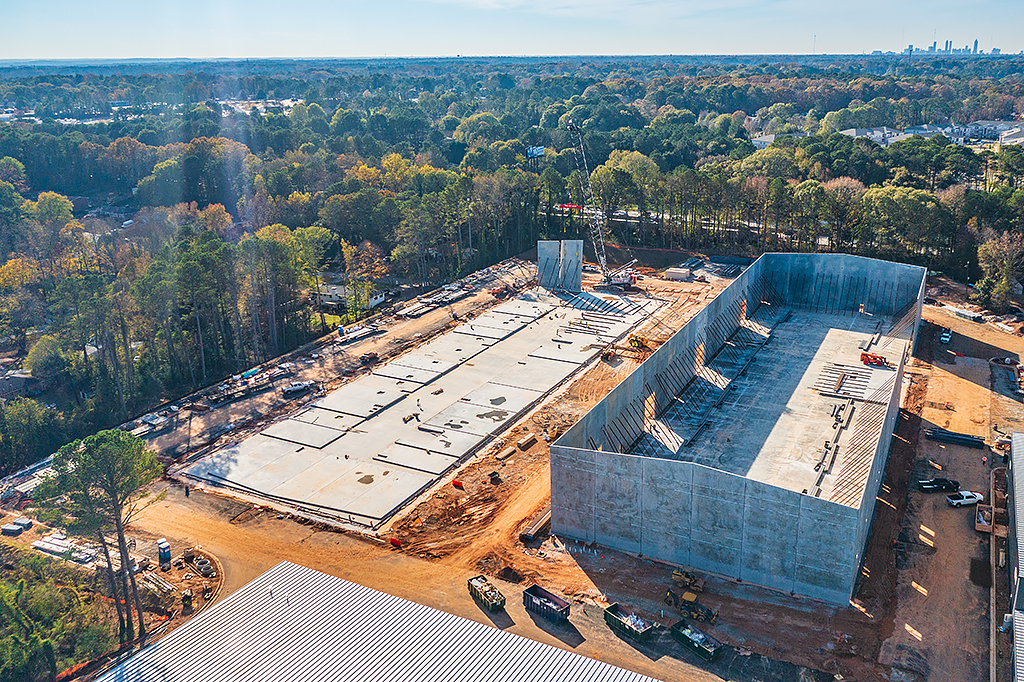
“As the tilt-up contractor, we really had to work as a team with the engineers and GC to ensure the tilt bracing would be seamless beside the PEMB structure of the buildings,” said Sam Huff, project manager at Martin Concrete. This resulted in a truly customized approach to maximize the studio’s functionality with the six sound stages, while providing the option to retract interior doors to combine stage settings for more extensive production needs.
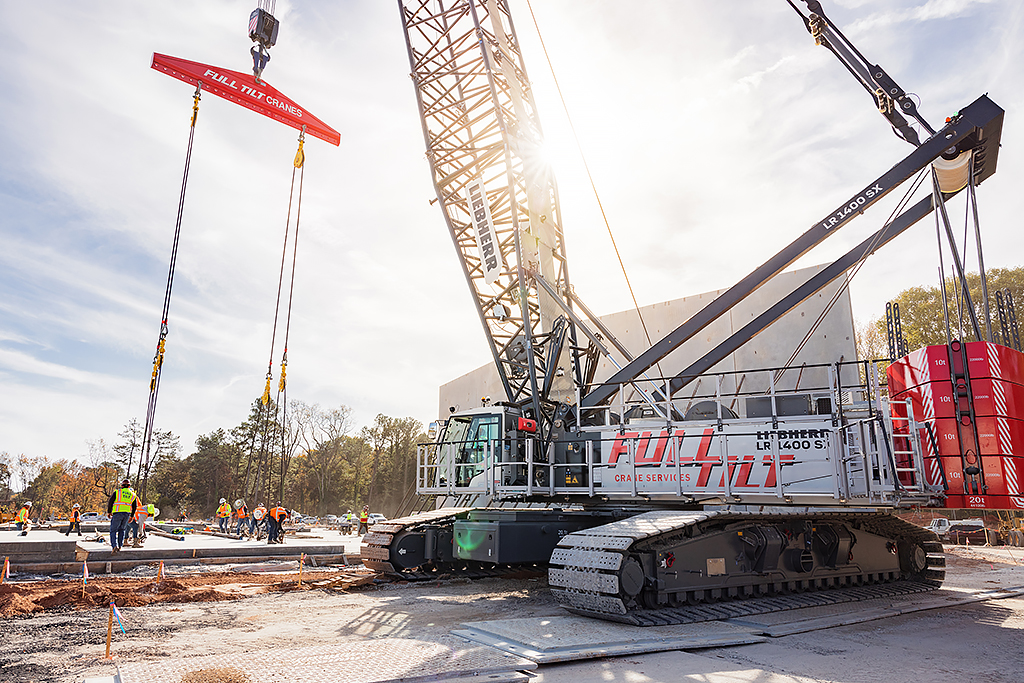
“The concrete scope of work for this project reflected a lot of the goal of the owners in creating a sustainable and green production studio. Type 1L cement was used for the concrete scope of the project, which promotes less energy usage and certainly had a part in the LEED certification for the studio,” added Huff.
Full Tilt Crane Services, a Martin Concrete Construction sister company, also celebrated a new milestone alongside the construction of Electric Owl Studios: Full Tilt Crane Services recently acquired a new Liebherr 1400 SX crane, the first of its kind in the US. The need for a crane of this size became apparent with the growing demand to lift larger and heavier panels on more and more projects. The crane has erection capabilities up to 300,000 lbs., depending on the circumstances.
“Electric Owl Studios was the first project for our new crane and also the first project [on which] a crane of this type has been used in the US. We chose to start with this project to match the weight of the tilt wall panels that reached up to 157,300 pounds,” said Connor Beck, project manager at Full Tilt Crane Services.
The studio’s construction included 199,000 SF of tilt-wall panels ranging from 48’ to 55’ that were fully erected by the Full Tilt Crane Services team.
The success of the Electric Owl Studios construction project positions it to become a Tilt Up Achievement Award winner. The “greenest studio on earth” is a distinguished addition to the Atlanta community and the international film industry.
